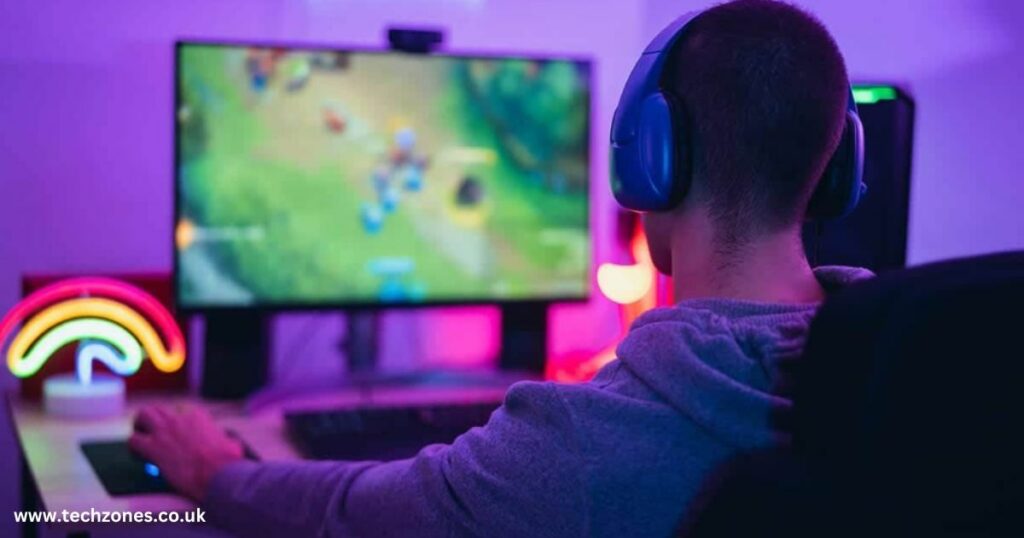You saved up all of your money and spent hours upon hours researching the best hardware to create the perfect gaming computer. With meticulous care, you assembled your gaming rig, eager to unleash its full potential. And for a while, your gaming experience was unmatched as your computer powered through every game, delivering impressive frame rates and smooth gameplay.
But as time went on, you started noticing a decline in performance. Games that once ran flawlessly now lagged and stuttered, robbing you of the immersive experience you once enjoyed. If this sounds familiar, you’re not alone. Many games face the same dilemma, wondering why their high-performing gaming rigs start losing stream over time. The answer lies in one often overlooked aspect: Maintenance.
Just like a new car requires regular upkeep to maintain its peak performance, gaming PCs also need proper maintenance to ensure they continue to deliver optimal gaming experiences. Unfortunately, maintenance is often neglected, leading to performance degradation and frustrations.
If you want to keep your gaming PC purring along and unleash its full potential, join us as we delve into the world of gaming PC maintenance. By implementing these easy maintenance steps, you can extend the lifespan of your components, prevent performance issues, and enjoy uninterrupted gaming sessions.
So let’s dive in and discover the key tips for keeping your gaming rig in top shape. If you are unable to perform these tips the must consult a computer repair specialist.
Tips to Improve Gaming PC Performance By Repair Specialists
Dust is a key contributor to your PC’s poor performance. It can hinder the performance of your gaming PC by obstructing airflow and causing overheating. Here is how you can keep your system clean.
- Regular Dusting: Use compressed air or a soft brush to gently remove dust from your PC components, including the case, fans, and vents. Ensure your PC is powered off and unplugged before cleaning.
- Filter Maintenance: Clean or replace the air filters in your PC case to prevent dust from entering the system. These filters help maintain clean airflow and reduce dust buildup.
- Cable Management: Proper cable management not only improves airflow but also makes it easier to clean your PC. Organize and secure cables using cable ties or management solutions.
Monitor Your Temperatures
Overheating can lead to performance degradation and potential damage to your PC’s components. Monitor your system temperatures using software tools or BIOS settings. If temperatures are consistently high, consider the following:
- Improve Airflow: Ensure proper airflow by arranging fans for optimal cooling. Consider adding additional fans or upgrading to more efficient cooling solutions like liquid cooling.
- Clean Heat Sinks: Over time, heat sinks can accumulate dust and reduce their cooling efficiency. Clean them periodically to maintain heat dissipation.
- Apply Thermal Paste: Thermal paste helps transfer heat from the CPU to the heat sink. If you notice high temperatures, consider reapplying the thermal paste for better heat transfer.
Update Drivers and Software
Regularly updating drivers and software are crucial for optimal gaming performance and compatibility. Follow these steps:
- Graphics Drivers: Keep your graphics card drivers up to date by visiting the manufacturer’s website or using automatic driver update tools. Updates drivers often provide performance improvements and bug fixes.
- Game Updates: Install updates for your games to benefit from performance enhancements and bug fixes. Game developers frequently release patches to optimize gameplay and address issues.
- System Updates: Ensure your operating system is up to date. Operating system updates often include security patches and performance improvements that can benefit your gaming experience.
Maintain a Stable Power Supply
Power fluctuations and interruptions can damage your gaming PC’s components. Follow these steps to ensure a stable power supply.
- Surge Protector: Use a surge protector or uninterruptible power supply (UPS) to protect your PC from power surges and voltage fluctuations. These devices help safeguard your components against electrical damage.
- Proper shutdown: Always shut down your PC properly to prevent sudden power loss. Avoid unplugging your PC or turning off the power supply while the system is running.
Conclusion
Maintaining your gaming PC is crucial for optimal performance and longevity. By following the tips provided above, you can ensure your gaming rig stays in top shape. Regular maintenance will enhance your gaming experience, allowing you to fully immerse yourself in the world of gaming without interruptions or performance issues.
In case you face any hardware or complex software issues, you must take your PC to a reputed store to ensure a quality repair. At Tech Zone, our specialists of computer repair in Manchester are well-qualified and skilled to handle all your gaming PC issues effectively. We make use of advanced tools and techniques to ensure quality repair. Feel free to contact us.


